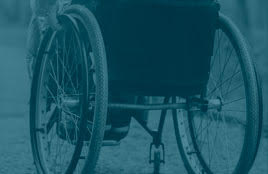By: Robert N. Hunn
The year was 1989. I had been a lawyer for two years and was working as an associate in a plaintiff’s personal injury firm in Center City Philadelphia. George H. Bush was our president and I settled in one January night to watch the State Of The Union Address.
I watched as our President talked about a thousand points of light, duty, sacrifice, commitment, and patriotism. After these uplifting comments our President went on an attack. A vicious attack. Who was he attacking? He was attacking me. Well, actually he was attacking all plaintiff personal injury lawyers but it felt like he was attacking me personally. I was surprised to learn that I and my ilk were responsible for every bad thing in society. We were responsible for the bad economy, the cost of healthcare, and I could have sworn that he said we were the reason for bad service at the drive through. We were scum, villains and apparently bad dressers. I’ll never forget that my President referred to us as “that tasseled loafer wearing bunch.” So I wouldn’t offend the President anymore, I quickly threw all my loafers in the trash.
“Wow, the president really hates my guts,” I thought to myself while trying to process what I just heard. I knew that in general, lawyers had a bad rap. I knew that people often misquoted the Shakespeare line from Henry IV; the one where people say “First thing we do is kill all the lawyers.” What I didn’t know was that the type of law I got involved in after law school made me the most hated type of lawyer of all – the plaintiff’s trial lawyer.
Why was I so bad? What was I doing that was so destroying the fabric of civilized society that even the President of the United States didn’t like me? I can remember some of the cases I was working on at the time; obviously as a young associate on the file. I represented a 12 year old boy who suffered brain damage in an ATV accident, a house wife who slipped and fell at a supermarket and broke her leg and a child who was deaf but went undiagnosed for years despite the parent’s pleas to the pediatrician for hearing tests. What was so wrong about representing the legal rights of these people in the civil justice system?
Fast forward to today. I have been a plaintiff’s trial attorney for 26 years. I represent the rights of injured citizens in the civil justice system. Not the criminal justice system but the civil justice system. My naivety is gone. And, I’ve come to learn something that most people don’t know and quite frankly don’t have reason to care about unless they need to use the civil justice system. What I’ve learned, quite frankly, is that an open and accessible civil justice system is not in everyone’s financial interest. Obviously, no one is going to openly announce that they are against a civil justice system. Instead, it’s easier and far more effective to attack, denigrate and attribute bad motives to the people who earn a living working within a civil justice system. That would be me. That would be all plaintiff trial attorneys.
This is the start of a series of blogs on the civil justice system and why you should care about it. Caring about a strong civil justice system is about caring for individual rights, worker’s rights, the rights of the poor, the rights of the oppressed and the rights of the voiceless in our society. This blog will take you on a journey through the civil justice system, expose the myths and lies about personal injury litigation, the court system and plaintiff personal injury attorneys. Mostly, I hope to open your eyes to how certain groups and economic sectors in our country have misled the public into believing that such things as tort reform will help them when in truth it would only serve to harm their own individual interests. They have been fooling you for a long time.
Stay tuned. I got a lot to tell you.






